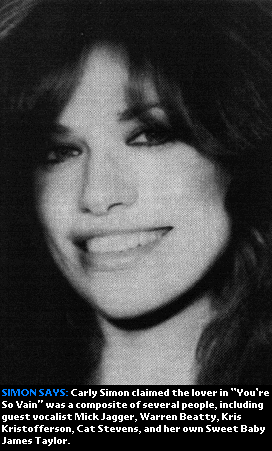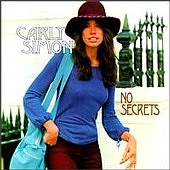- Home
- Introduction, Update Information, Links
- The Super Seventies "Classic 500"
- Readers' Favorite Seventies Albums
- Seventies Single Spotlight
- The Top 100 Seventies Singles
- Favorite Seventies Artists In The News
- Seventies Almanac - Year By Year
- Seventies Singles - Month By Month
- Seventies Albums - Month By Month
- Seventies Daily Music Chronicle
- Seventies Superstars In Their Own Words
- The Super Seventies Archives
- Seventies Trivia Quizzes & Games
- Seventies MIDI Jukebox
- The Super Seventies Bookstore
- The Super Seventies Photo Gallery
- Seventies' Greatest Album Covers
- Popular Seventies Movies & TV
- Seventies Celebrity Portrait Gallery
- Seventies Lyrics Hit Parade
- Top Seventies Artist Music Videos
- Seventies Usenet Music Forums
- Seventies Smiley Calendar
- EXTRA!
- Superseventies.com Facebook Page
- Superseventies.com Reddit Discussions
- The Super Seventies Blog
- Tweet The Seventies
- RockSite InfoBank
- Beatlefan Site
- Thanks For Your Support! / Top Sellers
- Search The Rock Site/ The Web
Carly Simon
Elektra 45824
Dec. 1972
Billboard: #1
T he name of Carly Simon's LP may be No Secrets, but the question kids from Minneapolis to Savannah are asking is, "Who's the mystery man behind the saga of 'You're So Vain'?" While Carly claims it's about several old flames from her single days, her brother reveals she had one special guy in mind. "It's not about James," she'll admit, "although he did have the unfortunate experience of flying up to Nova Scotia." The most likely candidate seemed to be Mick Jagger, and although Carly denies it's about Mr. Lips, one close friend reveals that "Jagger's been after her ass for a long time. He would have left Bianca if Carly had encouraged him." Says another witness, "Jagger spent three hours holed up in her hotel room during the London recording sessions -- and they probably weren't humming 'You're So Vain'!" Jagger denies it's him and points the accusing finger instead at "this very rich actor who's a good friend of mine." Who's the real mystery man? Carly's mum, but her sister admits that the target of Carly's lyrics is good friend and actor Warren Beatty. James merely says, "We know who it is, and we won't tell!" - Circus, 3/73.


Most of the major players in the singer/songwriter mold knew each other well and coexisted in various permutations as friends and lovers (Crosby-Mitchell, Nash-Mitchell, Browne-Mitchell, Taylor-Mitchell, Simon-Taylor, Stills-Collins) like a hippi-fied cast of Knots Landing. It was a small world in which each of the players knew each other well and often wrote songs about their relationships. They had become a privileged and elitist club of few members who seemed to be writing songs under the premise that their love lives were universally appealing, convinced that the record-buying public would remain tolerant of their self-indulgence.
Simon had a unique perspective on the whole phonomenon. Born into a wealthy family who controlled one of New York's most successful publishing houses, she was familiar with society life and the conceits that are peculiar to the rich and famous. Her songs reflect her observations and often betray the propriety that her family's lifestyle demanded. She could be just as topical and scathing when singing about her peers. "You're So Vain" is the ultimate put-down of a conceited hedonist (Warren Beatty? Mick Jagger? Who knows?), and it drew attention to the cannibalistic nature of the singer/songwriter circle in the early '70s. For its time, it was a perfect piece of analytical criticism. It contained the perceptions that were all the more powerful because they were sung by a woman who sounded eager to make transparent the conceits of her male protagonist. If it was intended as vengeance for a lover who spurned her, it did the trick, particularly when considering that it was a #1 hit for three weeks. Getting Mick Jagger to supply backup vocals made the song even more provocative. While "You're So Vain" was one of the biggest hits of the troubadour/rock star era, it also drove a steak through the heart of the beast, by drawing attention to the contradictory nature of sensitivity and self-obsession.
- Thomas Ryan, American Hit Radio,
Prima Entertainment, 1996.
![]() Reader's Comments
Reader's Comments
No comments so far, be the first to comment .
![]() Main Page
| Additional Singles Intro
| Singles By Month
| Seventies Almanac
| Search The RockSite/The Web
Main Page
| Additional Singles Intro
| Singles By Month
| Seventies Almanac
| Search The RockSite/The Web


